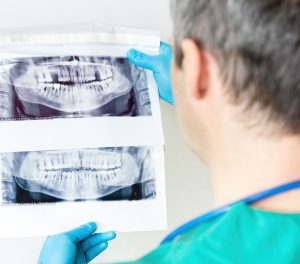Unmasking the Hidden Impact of Tooth Loss: Protecting Your Foundation in Schaumburg
Are you missing one or more teeth, perhaps feeling self-conscious about your smile, or finding it harder to enjoy your favorite foods? Dental implants are commonly used to replace at least one tooth, whether it’s one missing tooth or multiple teeth. An often unseen consequence of tooth loss that can profoundly impact your long-term oral health and facial structure: the deterioration of your jawbone. At Royal Dental Care, led by the highly experienced implant dentist in Schaumburg, Dr. Troyan, we believe in providing solutions that go beyond surface aesthetics.

Why Choose Our Local Implant Dentist Over Big City Offices?
When considering dental implants, the question isn’t just what you choose, but where you choose to receive care. While large city offices might seem appealing, there are significant benefits to trusting your local implant dentist in Schaumburg.
Choosing Royal Dental Care means prioritizing personalized attention and seamless access over the often impersonal experience of high-volume city practices. Studies show that patient satisfaction is generally higher in private dental clinics due to more individualized care and stronger patient-dentist relationships.
Ready for a dental implant experience that prioritizes you? Contact Royal Dental Care in Schaumburg today. Call (847) 999-7620 to schedule your consultation.
Understanding Jawbone Loss After Tooth Extraction
When a natural tooth is lost, its root is no longer present to stimulate the surrounding jawbone. This lack of stimulation signals to the body that the bone is no longer needed in that area. As a result, the jawbone begins to resorb, or shrink away. In cases where the jawbone is too thin or weak to support a dental implant, a bone graft may be necessary as a preparatory treatment to restore bone volume and density. his process is surprisingly rapid; studies show that approximately 30% of the alveolar ridge (the part of the jawbone that holds the teeth) can be lost within the first six months after a tooth extraction.
This bone loss isn’t just an internal issue; it has visible consequences. As the jawbone diminishes, it can lead to:
- Changes in Facial Structure: Your lips may appear to sink inward, and wrinkles around the mouth can become more pronounced, giving you an aged appearance. This is often referred to as a “collapsed” facial look.
- Functional Problems with Dentures: If multiple teeth are missing and bone loss progresses, it becomes challenging to wear traditional dentures securely. Dentures rely on the existing bone ridge for support, and without sufficient bone, they can slip, cause discomfort, and make eating and speaking difficult.
- Compromised Chewing Ability: As the jawbone shrinks, the stability of any remaining teeth or dental prosthetics can be affected, making it harder to chew food effectively and potentially impacting nutrition. The loss of bone and tissue health can also increase the risk of implant failure if not properly managed.
The Role of Bone Grafting in Jawbone Preservation
For many patients considering dental implants to replace missing teeth, having enough healthy bone tissue in the jaw is an important factor for long-term success. Unfortunately, bone loss is a common consequence of tooth extraction, periodontal disease, or other health conditions, and can leave the jawbone too thin or weak to support an implant body. This is where bone grafting becomes a vital part of implant dentistry.
If you have been told you don’t have enough bone for dental implants, don’t lose hope. Advances in implant dentistry mean that bone grafting can often provide the solution you need. Talk to your dentist about whether bone grafting is right for you, and take the next step toward a healthier, more complete smile.
How Dental Implants Stimulate and Protect Your Bone
A dental implant is surgically implanted into the jawbone, acting as an artificial tooth root and providing the stimulation that your jawbone needs to stay healthy and intact. After the implant is placed, there is a healing time required for the implant to fuse with the bone, a process known as osseointegration. Because the implant is integrated directly into the bone, it continues to provide the necessary stimulation with every bite and chew.
Dental implants also provide support for crowns, bridges, or dentures, helping to restore chewing ability and appearance. This ongoing stimulation signals to your body that the jawbone is still in use and must be maintained, effectively preventing the bone resorption that occurs with other tooth replacement methods.
Benefits of a Strong Jawbone
The preservation of your jawbone through dental implants yields a multitude of benefits that extend far beyond simply having a full set of teeth.
- Lasting Facial Aesthetics: By preventing bone loss, dental implants help maintain the natural contours of your face. This means your facial features retain their support, preventing the sunken-in look that often accompanies significant tooth and bone loss. You can continue to look and feel younger.
- Clearer Speech: Loose dentures or gaps from missing teeth can affect your ability to speak clearly. Dental implants eliminate these issues, providing stable replacements that allow you to articulate words naturally and confidently.
- Enhanced Oral Health: Because implants preserve the jawbone, they help maintain the health of surrounding natural teeth. There is no need to grind down adjacent teeth for bridges, which can compromise their integrity. Implants stand alone, supporting your overall oral ecosystem. The final step of the dental implant process is the placement of a crown or dental crown, which restores the appearance and function of the tooth. Crowns are custom made restorations designed to fit each patient’s needs. A minor surgery may be required to place the abutment before the crown is attached.
- Long-Term Comfort and Confidence: The stability and natural feel of dental implants contribute to a high level of comfort. You can live your life without the daily concerns of tooth loss or ill-fitting prosthetics, enjoying renewed confidence in your smile and daily interactions. For patients missing multiple teeth, implant-supported dentures are an option; these dentures replace teeth and improve stability.
Protect Your Jawbone: Invest in Dental Implants in Schaumburg
At Royal Dental Care in Schaumburg, IL, Dr. Troyan and our dedicated team are passionate about helping you achieve and maintain optimal oral health. Dental implants offer a complete and lasting solution to tooth loss, ensuring your comfort, confidence, and continued health.
Don’t let missing teeth lead to irreversible bone loss. Take control of your oral health today with our top Schaumbug implant dentist. Residents of Elk Grove Village, Hoffman Estates, and Palatine are invited to discover the transformative benefits of dental implants at Royal Dental Care. Call us at (847) 999-7620 to schedule your consultation.

